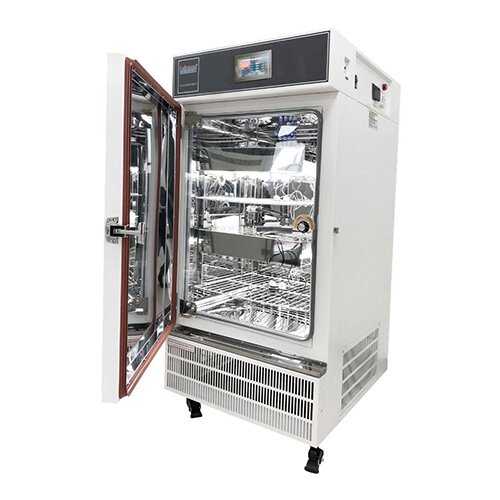How to Use a Photostability Test Chamber for Accurate Results
/ /Photostability testing is crucial in industries like pharmaceuticals, cosmetics, and chemicals, where product stability under light exposure is paramount. A high-quality photostability test chamber ensures precise and reliable results. Labonce, a leading photostability chamber manufacturer, provides state-of-the-art environmental stability test chambers designed to meet rigorous testing standards. Here’s a step-by-step guide on using a photostability test chamber for accurate results.
1. Understand the Photostability Test Chamber Specifications
Before beginning any test, it is vital to understand the specifications of your laboratory photostability chamber. Labonce chambers are designed to simulate a wide range of environmental conditions, including temperature, humidity, and light intensity, to provide a controlled environment that meets ICH Q1B guidelines. Ensure you are familiar with the chamber’s settings and capabilities.
2. Prepare Your Samples Properly
Proper sample preparation is crucial for obtaining accurate results. Ensure that all samples are placed in suitable containers that do not react with the light or environmental conditions. Arrange the samples uniformly within the photostability test chamber to ensure consistent exposure to the light source.
3. Set the Appropriate Test Parameters
Labonce photostability chambers come with advanced digital controllers to set precise environmental parameters such as temperature, humidity, and light intensity. Adjust these settings according to the specific requirements of your product testing protocol. Follow guidelines from regulatory bodies like ICH to ensure the test conditions are compliant.
4. Regular Monitoring and Documentation
Throughout the testing process, it is essential to regularly monitor the chamber’s performance and the condition of the samples. Labonce's photostability test chambers are equipped with data logging systems that facilitate real-time monitoring and automatic recording of environmental conditions. This helps in ensuring consistent results and identifying any deviations promptly.
5. Maintenance and Calibration
For consistent accuracy, regular maintenance and calibration of your photostability chamber are critical. Labonce provides comprehensive maintenance services and calibration support to ensure that your chamber remains in optimal working condition. Cleaning the chamber and checking for any wear and tear in components can help avoid unexpected issues during critical tests.
6. Analyze the Results Effectively
After completing the testing cycle, carefully analyze the collected data. Labonce's photostability chambers provide easy data export options for thorough analysis. Use this data to understand how your product behaves under different environmental conditions, which can be crucial for determining its shelf life and stability.
By following these steps, you can leverage the advanced capabilities of Labonce's environmental stability test chambers to obtain accurate and reliable photostability test results, ensuring your products meet the highest standards of quality and safety. As a trusted photostability chamber manufacturer, Labonce is committed to supporting laboratories in achieving excellence in stability testing.
